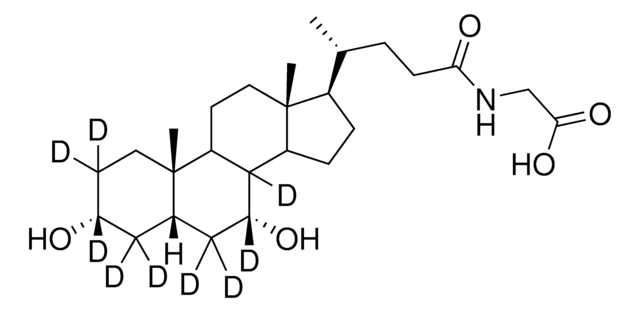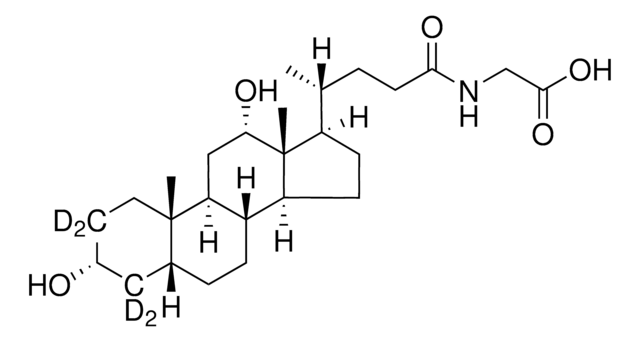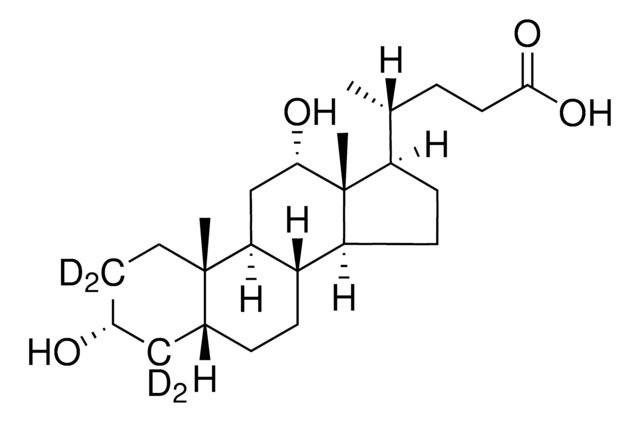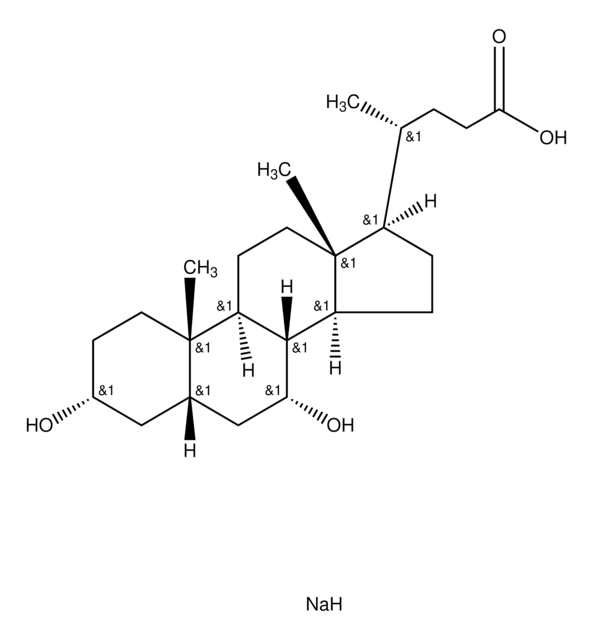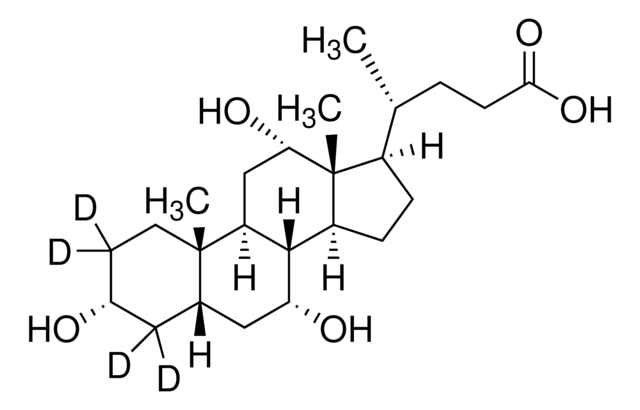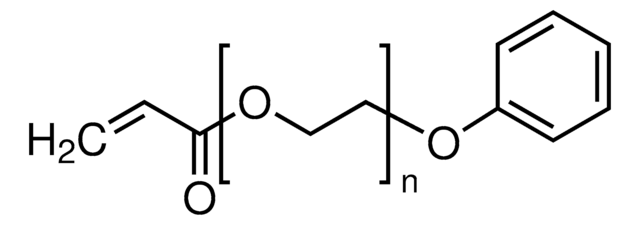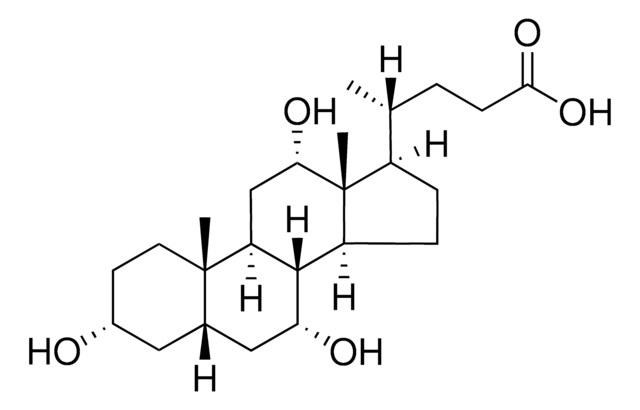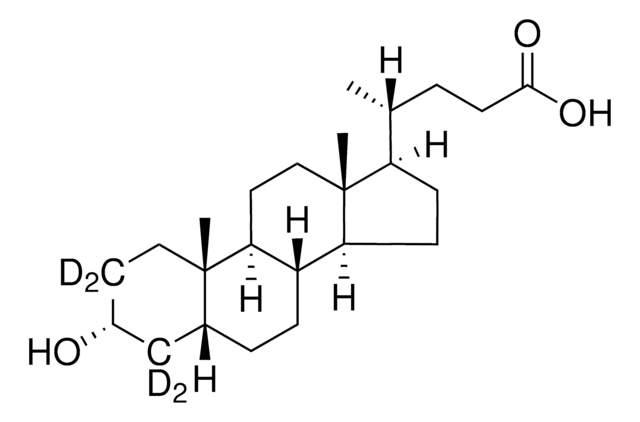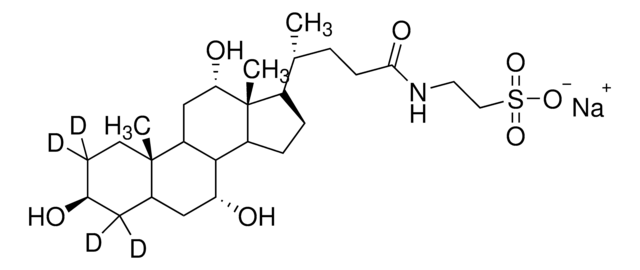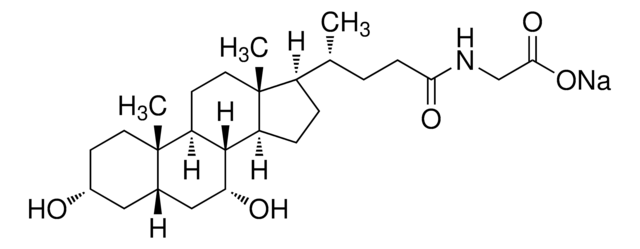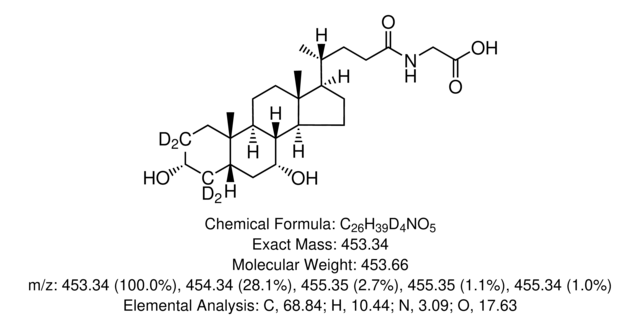614122
Chenodeoxycholic acid-2,2,4,4-d4
98 atom % D, 98% (CP)
About This Item
Recommended Products
isotopic purity
98 atom % D
Quality Level
Assay
98% (CP)
technique(s)
mass spectrometry (MS): suitable
mp
165-167 °C (lit.)
mass shift
M+4
SMILES string
[2H]C1([2H])C[C@]2(C)[C@H]3CC[C@]4(C)[C@H](CC[C@H]4[C@@H]3[C@H](O)C[C@@H]2C([2H])([2H])[C@@H]1O)[C@H](C)CCC(O)=O
InChI
1S/C24H40O4/c1-14(4-7-21(27)28)17-5-6-18-22-19(9-11-24(17,18)3)23(2)10-8-16(25)12-15(23)13-20(22)26/h14-20,22,25-26H,4-13H2,1-3H3,(H,27,28)/t14-,15+,16-,17-,18+,19+,20-,22+,23+,24-/m1/s1/i8D2,12D2
InChI key
RUDATBOHQWOJDD-PSTGXAJBSA-N
Packaging
Signal Word
Warning
Hazard Statements
Precautionary Statements
Hazard Classifications
Eye Irrit. 2 - Skin Irrit. 2
Storage Class Code
11 - Combustible Solids
WGK
WGK 1
Flash Point(F)
Not applicable
Flash Point(C)
Not applicable
Choose from one of the most recent versions:
Already Own This Product?
Find documentation for the products that you have recently purchased in the Document Library.
Customers Also Viewed
Our team of scientists has experience in all areas of research including Life Science, Material Science, Chemical Synthesis, Chromatography, Analytical and many others.
Contact Technical Service
